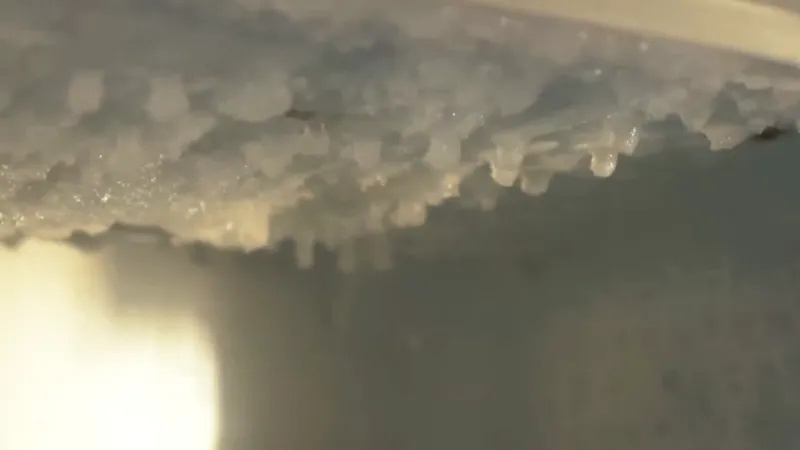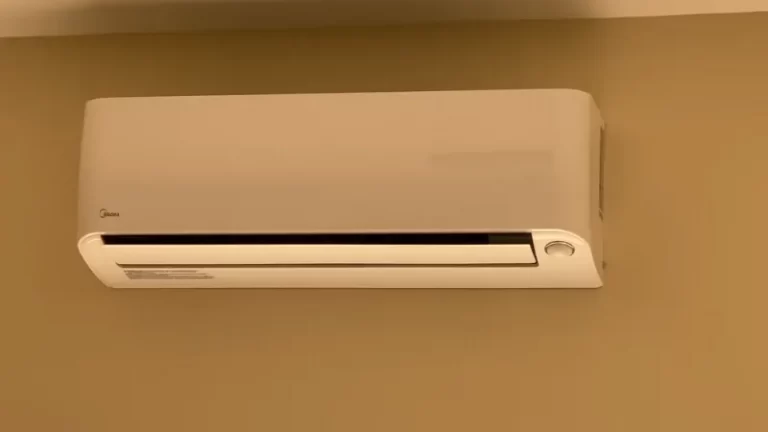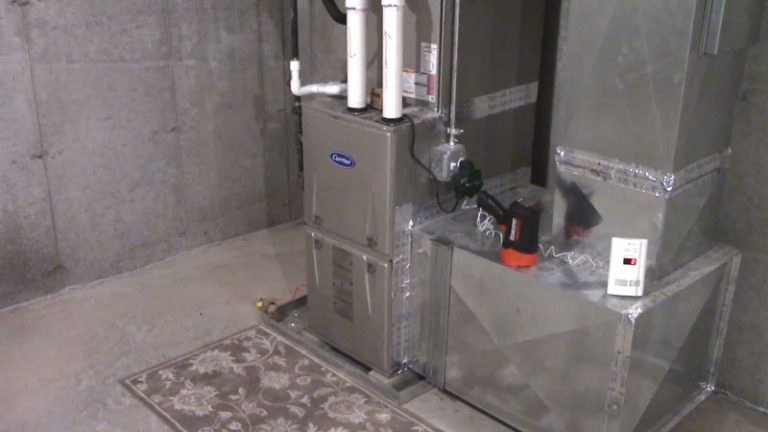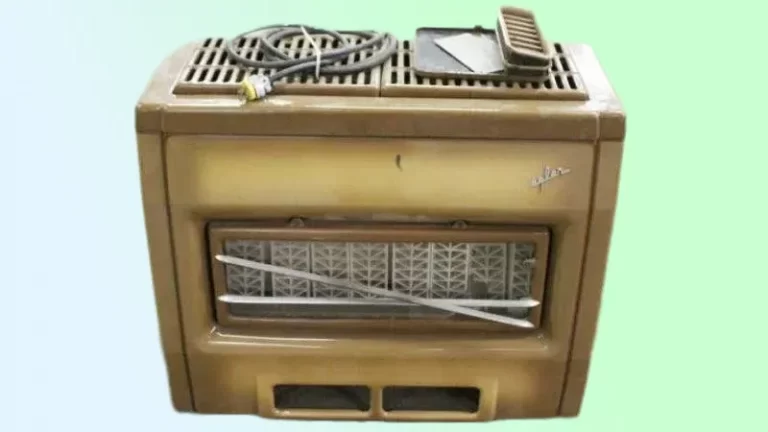Why do Ice Builds up in Refrigerator [Problems and Solutions]
Refrigerators are essential household appliances that play a crucial role in keeping our food and drinks fresh. However, like all mechanical devices, refrigerators are prone to several problems that can affect their performance.
One of the most common issues is ice buildup in the refrigerator. This can result in poor cooling, spoilage of food, and decreased efficiency. It is therefore important to address ice buildup issues in refrigerators promptly to avoid further damage and ensure optimal performance.
In this blog, we will explore 5 to 10 common ice buildup problems in refrigerators and provide practical solutions for each issue.
You'll Learn About
Ice in Refrigerator Problems
Ice buildup in a refrigerator is not normal in most modern refrigerators and can be caused by a number of reasons such as opening and closing the door too often, climate issues, or improper storage. If you notice ice buildup in your fridge, you should defrost it and monitor the situation.
Another common problem with refrigerators is not cooling enough, which can cause food to spoil and result in the ice maker not working. Other common refrigerator problems include defrosting problems, water leakage, strange noises, and light not working.
To prevent these issues, it is recommended to create a few inches of space around the unit to ensure proper airflow and prevent heat buildup at the back.

Causes of Ice Buildup in Refrigerators
Ice buildup in refrigerators is a common problem faced by many households. The accumulation of ice in the freezer section can cause various problems such as reduced efficiency, difficulty in accessing food items, and in some cases, even lead to a complete breakdown of the fridge. In this article, we will discuss the various causes of ice buildup in refrigerators and their possible solutions.
Climate Issues
The climate in which a refrigerator is kept can greatly affect its performance. Humid climates can cause the formation of ice in refrigerators as the moisture in the air enters the fridge and condenses on the cooling coils. In such conditions, the cooling system of the refrigerator struggles to keep up with the moisture buildup, and eventually, ice starts to form.
Overloading
The fridge overloading the fridge can cause a strain on the cooling system and cause ice buildup. When there is too much food in the fridge, it reduces the flow of air inside and the cooling system has to work harder to keep the temperature consistent. This can result in the buildup of ice in the freezer section.
Opening and Closing the Door Too Often
Frequent opening and closing of the fridge door can also cause ice buildup. Every time the door is opened, warm air enters the fridge, causing the cooling system to work harder to maintain the temperature. This, in turn, causes the formation of ice.
Insufficient Ventilation
A refrigerator needs proper ventilation to function efficiently. If the fridge is placed in a cramped or poorly ventilated area, it can lead to poor airflow, causing the cooling system to struggle and lead to ice buildup.
Ice buildup in refrigerators can be caused by various reasons such as climate issues, overloading, frequent opening and closing of the door, and insufficient ventilation. Understanding the causes can help you take the necessary steps to prevent ice buildup and maintain the efficiency of your refrigerator. Regular cleaning and maintenance can also go a long way in preventing this problem.
Symptoms of Ice Buildup in Refrigerators
Huge Chunks of Ice on the Walls of the Fridge
One of the most noticeable symptoms of ice buildup in a refrigerator is the presence of large chunks of ice on the walls or shelves of the appliance. This is a clear sign that there is too much moisture being trapped inside the fridge, causing ice to form. If left unaddressed, the ice can continue to build up, taking up valuable space in the refrigerator and making it difficult to access food and drinks.
Unusual Sounds From the Refrigerator
Another symptom of ice buildup is unusual sounds coming from the refrigerator. This can be a result of the ice rubbing against the walls or shelves, or it can be a result of the refrigeration components struggling to operate effectively because of the increased weight of the ice. This can result in a range of sounds, including loud buzzing or knocking sounds, or even a low humming sound.
Reduced Cooling Efficiency
In addition to the physical symptoms, ice buildup can also lead to reduced cooling efficiency. The ice can interfere with the refrigeration system, causing it to work less effectively.
As a result, the temperature inside the refrigerator may become warmer, causing food and drinks to spoil more quickly. This can not only be frustrating, but it can also be a waste of money as food will need to be replaced more frequently.
It’s important to address the issue of ice buildup in refrigerators as soon as possible, as it can lead to a range of serious problems if left unaddressed. By paying attention to the symptoms, and taking steps to prevent ice buildup, you can ensure that your refrigerator is operating effectively and that your food and drinks stay fresh for as long as possible.
How to Identify Ice Buildup in Refrigerators
Identifying ice buildup in your refrigerator can be done through a combination of visual inspection, performance observation, and temperature monitoring. Here are the steps you can follow to identify an ice buildup issue in your fridge.
Check the Interior of the Fridge
The first and easiest way to identify ice buildup in your fridge is by visually inspecting the interior. If you notice large chunks of ice forming on the walls or ceiling of your refrigerator, it’s a clear sign that you have an ice buildup issue. If you’re having trouble seeing inside the fridge, you can take everything out and look for frost or ice.
Observe the Performance of the Fridge
If your refrigerator is having trouble keeping food at the desired temperature, it could be a sign that there is an ice buildup issue. This can cause your fridge to work harder and longer to maintain the temperature, leading to increased energy consumption and decreased performance.
Monitor the Temperature
A thermometer can be used to monitor the temperature inside the refrigerator. If the temperature inside the fridge is higher than the temperature you have set, it could be a sign that there is an ice buildup issue. This is because the ice buildup can prevent proper air circulation, causing the temperature inside the fridge to rise.
identifying ice buildup in your refrigerator is crucial in order to prevent further damage to your fridge and to ensure that it continues to function properly. By following these steps, you can easily identify an ice buildup issue and take the necessary steps to resolve it.
How to Fix Ice Buildup in Refrigerators
Defrost the Fridge
One of the most effective solutions to ice buildup in refrigerators is to defrost the unit. This process involves turning off the refrigerator and allowing the ice to melt, which can then be easily removed.
It’s important to be patient during this process and not to use any sharp objects, such as knives or forks, to remove the ice. Simply allow the fridge to defrost naturally. Once the ice has melted, clean the interior of the fridge and ensure that there are no food particles or moisture left behind, as this can lead to further ice buildup.
Create Space Around the Unit
Another critical factor that can cause ice buildup in refrigerators is the lack of space around the unit. If there isn’t enough space for air to circulate around the fridge, this can lead to a buildup of ice.
It’s important to ensure that there is at least an inch of space around the sides, back, and top of the fridge to allow air to circulate. If the unit is positioned too close to a wall, it may be necessary to move it to a different location.
Check the Door Seals and Gaskets
Another important factor to consider when trying to fix ice buildup in refrigerators is the door seals and gaskets. If these are not working correctly, they can allow cold air to escape from the fridge, which can lead to ice buildup.
It’s important to check the door seals and gaskets regularly to ensure that they are in good condition. If there are any cracks or gaps in the seals, these should be repaired or replaced.
Clean the Condenser Coils
Finally, another effective solution to ice buildup in refrigerators is to clean the condenser coils. These coils are responsible for removing heat from the fridge, and if they are dirty, they can become clogged, leading to a buildup of ice.
It’s important to clean the coils regularly to ensure that they are working efficiently. This can be done using a brush or vacuum cleaner to remove any dirt and debris. If the coils are too dirty, it may be necessary to replace them.
Ice buildup in refrigerators can be a frustrating and costly problem, but it can be prevented by following the tips outlined in this article. Whether you’re experiencing reduced cooling efficiency, unusual sounds from your refrigerator, or huge chunks of ice on the walls of the fridge, these solutions will help you to get your unit working efficiently and effectively once again.
When to Call a Professional
If you are experiencing issues with ice buildup in your refrigerator, it is important to know when it is time to call a professional. There are several signs that indicate it’s time to seek the assistance of an expert.
If the Problem Persists
If you have tried fixing the issue yourself, but the ice buildup continues, it may be a sign of a more serious problem. A professional technician will be able to identify the root cause and provide a long-term solution.
If There Are Unusual Sounds Coming From the Refrigerator
If you hear strange noises coming from your fridge, such as hissing, rattling, or buzzing, it is time to call a professional. These sounds could indicate a problem with the fan, compressor, or refrigerant levels, and a technician will be able to diagnose and repair the issue.
If You’re Unsure About the Solution
If you are not confident in your ability to fix the issue, it is best to call a professional. Technicians are trained to handle a variety of refrigerator problems, and they will be able to provide a quick and effective solution.
if you are experiencing persistent ice buildup in your refrigerator, or if you are hearing unusual sounds, it is important to seek the assistance of a professional. They will be able to diagnose and repair the problem, ensuring that your fridge is functioning efficiently and effectively.
Conclusion
Ice buildup in refrigerators can be caused by various factors such as climate issues, overloading the fridge, frequent opening and closing of the door, and insufficient ventilation. Symptoms of ice buildup include huge chunks of ice on the walls, unusual sounds from the refrigerator, and reduced cooling efficiency.
To identify the issue, you can check the interior of the fridge, observe its performance, and monitor the temperature. To fix the problem, you can defrost the fridge, create space around the unit, check the door seals and gaskets, and clean the condenser coils.
If the problem persists or there are unusual sounds coming from the refrigerator, it is best to call a professional. Maintaining the performance of your refrigerator is crucial to ensure its longevity and efficiency.
By following the advice in this article, you can prevent future ice buildup issues and keep your fridge working smoothly.



